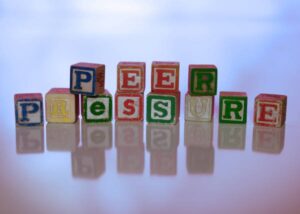Kinh Nghiệm Hướng dẫn Employees all levels often resist because they are used to doing their jobs in ways they know. 2022
Hoàng Văn Bảo đang tìm kiếm từ khóa Employees all levels often resist because they are used to doing their jobs in ways they know. được Update vào lúc : 2022-09-20 00:50:09 . Với phương châm chia sẻ Mẹo về trong nội dung bài viết một cách Chi Tiết Mới Nhất. Nếu sau khi đọc Post vẫn ko hiểu thì hoàn toàn có thể lại Comments ở cuối bài để Ad lý giải và hướng dẫn lại nha.Back to Top
- The Truth About Resistance to ChangeWhy People Resist Change(1) Loss of status or job security in the organization(2) Poorly aligned (non-reinforcing) reward systems(3) Surprise and fear of the unknown(4) Peer pressure. (5) Climate of mistrust(6) Organizational
politics(7) Fear of failure(8) Faulty Implementation Approach (Lack of tact or poor timing)Case Study: Do People Naturally Resist Change?Are you going to resist this change?Video: Why People Resist ChangeSurvey: Resistance to ChangeMember ContentScholarly Citations for this ArticleWhat are common reasons that employees resist change quizlet?What are two factors that contribute to resistance to change?What are the four basic types of organizational structure?Which of the following are considered to be disadvantages of centralized authority?
The Truth About Resistance to Change

With the exponential growth of computer processing in this Information Age and its impact on an ever evolving global economy, change is now the normal state of business.
Despite the presence of change all around us, organizational change does not come easy, however. In fact, many organizations fail to make the changes that are necessary for their survival.
Senior sponsors of organizational change often blame implementation failures on employee and middle manager resistance to change. At times, this is true. More often, however, senior leaders and managers over-estimate how much change they can force on the organization. Some also do not understand how difficult it is to lead and implement change effectively.
Leading and implementing change requires people skills!
As I coach managers on their change management efforts, I explain that resistance to change is rarely irrational. Keep in mind that if your employees (or even your peers or boss) are resisting your change efforts, their resistance comes from a perspective that makes perfect sense to them.
This is because of the following truth about change:
People do not resist change that they believe is in their best interests. Click To Tweet
Back to Top
Why People Resist Change
In practice, there are 8 common reasons why people resist change:
(1) Loss of status or job security in the organization
 It is not our nature to make changes that we view as harmful to our current situation. In an
organizational setting, this means employees, peers, and managers will resist administrative and technological changes that result in their role being eliminated or reduced. From their perspective, your change is harmful to their place in the organization!
It is not our nature to make changes that we view as harmful to our current situation. In an
organizational setting, this means employees, peers, and managers will resist administrative and technological changes that result in their role being eliminated or reduced. From their perspective, your change is harmful to their place in the organization!Forcing a change on others has its place. Over time, however, when this is the only approach that you use to make change, you’ll find that your change results suffer. If you overuse this approach, you will harm your effectiveness over the long term as others will find direct and indirect ways to resist you. Without a thoughtful change strategy to address resistance to change, you will trigger strong resistance and organizational turnover.
(2) Poorly aligned (non-reinforcing) reward systems
 There is a common business saying that managers get what they reward. Organizational stakeholders will resist change when they do not see any rewards.
There is a common business saying that managers get what they reward. Organizational stakeholders will resist change when they do not see any rewards.
When working with managers, I will ask them, Where is the reward to employees for implementing your change?
Without a reward, there is no motivation for your team to support your change over the long term. This often means that organizational reward systems must be altered in some way to support the change that you want to implement. The change does not have to always be major or costly. Intrinsic rewards are very powerful motivators in the workplace that are non-monetary.
(3) Surprise and fear of the unknown
 The less your team members know about the change and its impact on them, the more fearful they will become. Leading change also requires not springing surprises on
the organization! Your organization needs to be prepared for the change.
The less your team members know about the change and its impact on them, the more fearful they will become. Leading change also requires not springing surprises on
the organization! Your organization needs to be prepared for the change.In the absence of continuing two-way communication with you, grapevine rumors fill the void and sabotage the change effort. In fact, ongoing communication is one of your most critical tools for handling resistance to change. But, it’s not just telling! The neglected part of two-way communication — listening — is just as powerful.
Change that is poorly communicated will only stir up organizational resistance. Click To Tweet
(4) Peer pressure.
 Whether we are introverted or extroverted, we are still social creatures. Organizational stakeholders will resist change to protect the interests of a group.
Whether we are introverted or extroverted, we are still social creatures. Organizational stakeholders will resist change to protect the interests of a group.You might see this among some of your team members who feel compelled to resist your change to protect their co-workers. If you’re a senior executive or middle manager, your managers who report to you may will resist your change effort to protect their work groups.
As the psychologist Abraham Maslow discussed, the need to belong to a group is a powerful need in the workplace. If your change effort threatens these workplace social bonds, some of your team members may resist your change effort.
(5) Climate of mistrust
 Meaningful organizational change does not occur in a climate of
mistrust. Trust, involves faith in the intentions and behavior of others. Mutual mistrust will doom an otherwise well-conceived change initiative to failure.
Meaningful organizational change does not occur in a climate of
mistrust. Trust, involves faith in the intentions and behavior of others. Mutual mistrust will doom an otherwise well-conceived change initiative to failure.If you are trying to implement your change effort in an environment where most of the people working with you mistrust each other, you’ll have limited success. You’ll need to spend some time rebuilding trust if you want better results from your change effort.
Trust is a fragile asset that is easily harmed.
It's hard to get employees to support the changes that leadership wants to make when all that the employees see for themselves are negative consequences. Click To Tweet
(6) Organizational politics
 Some resist change as a political strategy to “prove” that the decision is wrong. They may also resist to show that the person leading the change is not up to the task. Others may resist because they will lose some power in the organizational. In
these instances, these individuals are committed to seeing the change effort fail.
Some resist change as a political strategy to “prove” that the decision is wrong. They may also resist to show that the person leading the change is not up to the task. Others may resist because they will lose some power in the organizational. In
these instances, these individuals are committed to seeing the change effort fail.Sometimes when I work with managers they become frustrated with the political resistance that they encounter from others. Political obstacles are frustrating when you are trying to implement needed change. My advice to you is to acknowledge what you are feeling and then take positive steps to counter the organizational resistance you are facing.
Politics in organizations are a fact of life!
(7) Fear of failure
 Sweeping changes on the job can
cause your team members to doubt their capabilities to perform their duties. What is known is comfortable! Your team members may be resisting these changes because they are worried that they cannot adapt to new work requirements.
Sweeping changes on the job can
cause your team members to doubt their capabilities to perform their duties. What is known is comfortable! Your team members may be resisting these changes because they are worried that they cannot adapt to new work requirements.Fear is a powerful motivator that can harden people’s intent to resist your efforts to implement change. If you want your change effort to be successful, you’ll need to help your team members move beyond these fears.
(8) Faulty Implementation Approach (Lack of tact or poor timing)
 Sometimes it is not what a leader does, but it is how s/he does it that creates resistance to change! Undue resistance can occur because changes are introduced in an insensitive manner or an awkward time.
Sometimes it is not what a leader does, but it is how s/he does it that creates resistance to change! Undue resistance can occur because changes are introduced in an insensitive manner or an awkward time.In other words, people may agree with the change that you want to implement but they may not agree with how you are going about making the change.
For any significant organizational change effort to be effective, you’ll need a thoughtful strategy and a thoughtful implementation approach to address these barriers.
So, the next time you hear someone say that people naturally resist change explain to them that this
is a myth. We change all of the time.
People in an organization
will always evaluate the benefit of any change. Will the change make their organizational lives better? Or, will the change make their lives worse?
Click To Tweet
Back to Top
Case Study: Do People Naturally Resist Change?
OK, you’re making me work hard here! Consider the following story that I share in my leadership training:
After the end of a tough week in the office, you arrive home and eat a quick meal and collapse on your bed. Early the next morning, you check your mailbox and find that you have a registered letter the postal office. You get annoyed and reluctantly get dressed to go pick up this “special letter” on what is supposed to be your day off.
On the way there, you say to yourself that this better not be another trick sales offer from that vendor trying to sell you something for your house. You arrive the postal office and you stand in line for what seems like forever. You finally get to the representative who has your mail and you grumble that you are there to pick up a registered letter.
He gets your letter, gives it to you, and when you look it you can’t believe what you have received. You say to yourself that this can’t be what you think it is.
You start visibly shaking as you quickly open the letter.
As you read the letter, your whole attitude changes. You go from being grumpy to being excited.
By the time you get to the end of the letter you are jumping up and down and yelling with delight.
You just won a national sweepstakes contest and the award is one million dollars.
Now I have just one question for you:
Are you going to resist this change?
People do not resist change that they believe is in their best interests. Click To Tweet
Back to Top
Video: Why People Resist Change
Music for this video is courtesy of www.musicrevolution.com.
Back to Top
Survey: Resistance to Change
Back to Top
Member Content
Back to Top
Scholarly Citations for this Article
Written by Robert Tanner | Copyrighted Material | All Rights Reserved Worldwide
This article is accurate to the best of the author’s knowledge.
Content is for informational or educational purposes only and does not substitute for professional advice in business, management, legal, or human resource matters.
What are common reasons that employees resist change quizlet?
The top reasons employees resist change are (1) individuals' low predisposition toward change; (2) surprise and fear of the unknown; (3) climate of mistrust; (4) fear of failure; (5) loss of status or job security; (6) peer pressure; (7) disruption of cultural traditions or group relationships; (8) personality ...What are two factors that contribute to resistance to change?
What are the top causes of resistance to change?. Mistrust and lack of confidence.. Emotional responses.. Fear of failure.. Poor communication.. Unrealistic timelines..What are the four basic types of organizational structure?
The four types of organizational structures are functional, multi-divisional, flat, and matrix structures.Which of the following are considered to be disadvantages of centralized authority?
Disadvantages include the tendency to stifle innovation and creativity, making it hard for an organization to adjust to change. Centralized authority may also decrease job satisfaction and organizational commitment in low level employees. Tải thêm tài liệu liên quan đến nội dung bài viết Employees all levels often resist because they are used to doing their jobs in ways they know.